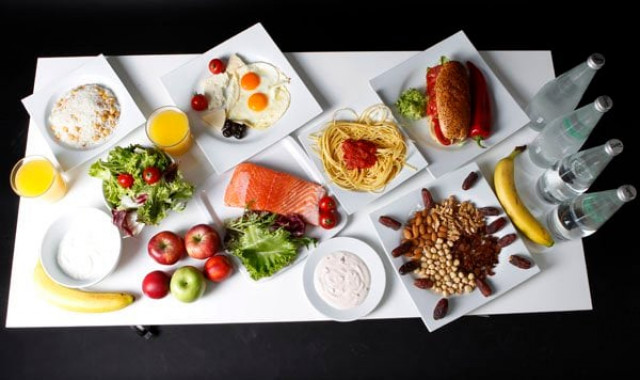What are we eating!
Organic food has become a multi-billion dollar industry as consumers become aware of the health benefits

Representational image. PHOTO: REUTERS
Have you sampled bananas or tomatoes abroad in the US or other countries that allow the sale of genetically modified food? If tried, these items will be tasteless. As if one is eating cardboard seasoned fruit. No flavour, only quantity. At the risk of sounding like my own parents (and I hated it when they said such things), much of such food that is offered today lacks any dietary value.
That scenario is now repeating itself in Pakistan. There are many examples where our local varieties are being undermined, like the garlic that is available for sale. We have two varieties: the desi and the Chinese. Most go for the Chinese variety because the cloves are larger and it looks fresher. But it isn’t better by any standard.
When I was working in a newspaper some years back, many a time I would get visits for representatives of companies promoting GM food crops. Their argument was simple: would you rather die from hunger owing to food shortages or would you invest in GM crops which boost yields manifold and help ensure bountiful supplies.
They had calculated how Pakistan — with its present rate of population growth — would start facing food shortages if we did not increase yields substantially in the coming years. It is a convincing argument. But it is also one that doesn’t tell the whole story.
This week we were also informed that hybrid wheat seeds will be available through a commercial venture in Pakistan by year 2022 with expectations that they will help increase crop production by at least 40-45% compared to the conventional seed varieties which the country is currently cultivating. A company official told the media that work is under way and in the past five years around $2.5 million has been spent on this project.
While this may help increase yields, it may also have serious implications for the roti-eating population. Many questions remain unanswered in case of GM crops. The yield is bound to increase manifold in the first couple of years — but at what cost?
Time and again we have been warned of the health risks of such food crops. Given the cost it has paid, the West — particularly the US — has woken up to the world of organic food. This has become a multi-billion dollar industry as consumers become aware of the health benefits of locally sourced and produced indigenous food items. We are going in the opposite direction.
The introduction of hybrid seeds would challenge Pakistan’s food security because single-use seeds would replace our heirloom seeds. This means our farmers will be dependent on these single use seeds for all times to come. They will be contingent on the companies making and selling them. In the past, with heirloom seeds, all farmers had to do was to store some of the seeds from their previous crop and then sow them once again.
There is more to worry about. Contrary to popular belief, yields do not remain high indefinitely. After an initial rise in harvest, the output then starts to reduce owing to the limitations of the land it is grown on.
Also, hybrid seeds are not fully pest-resistant as widely believed. They too can face pest attacks but of a kind which has not been foreseen by the seed company which would mean that if such an attack takes place, there would be no way to save the crops.
But the most important worry is the cost to human health. Why are we not being told that our local varieties are being sneakily replaced by hybrid ones? Why was there no national debate on such an important issue? It is our health and our future that is at stake. Will anyone take a stand on such an important issue?
Published in The Express Tribune, August 26th, 2019.
Like Opinion & Editorial on Facebook, follow @ETOpEd on Twitter to receive all updates on all our daily pieces.















COMMENTS
Comments are moderated and generally will be posted if they are on-topic and not abusive.
For more information, please see our Comments FAQ